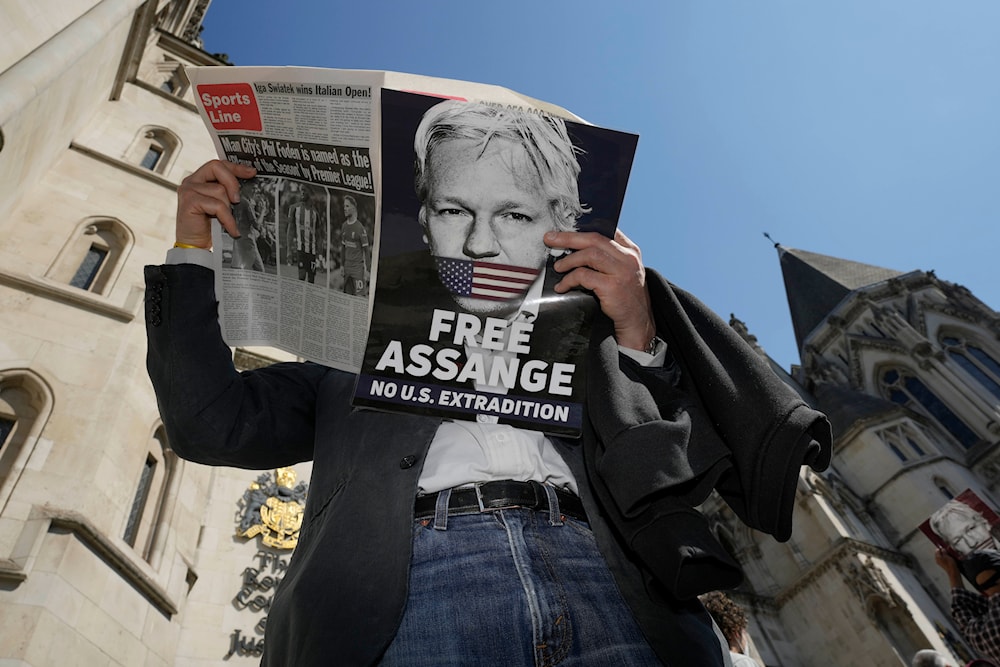Over 70% of Australians believe Assange charges must be dropped: Poll
Only 29% say Assange should be extradited to the US to face trial.
-

A protester reads a newspaper outside the High Court in London, on Monday, May 20, 2024. (AP)
The case against WikiLeaks founder Julian Assange must be dropped, and he must return to Australia, said over 70% of Australians in a joint poll conducted by the ABC newspaper and YouGov on Monday.
71% of poll respondents stated that the US and the UK should be pressured to withdraw the case, as opposed to the 29% who said Assange should be extradited to the US to face trial.
The survey was conducted online from May 24-30 and involved 1,510 Australians.
Two weeks ago, in the latest update on the case, Sky News reported that the UK's High Court of Justice in London decided in favor of Assange, approving his request to contest the decision on his extradition to the United States.
Assange is facing extradition for leaking classified US military documents in 2010-2011, which proved that the US committed war crimes in Iraq.
Assange awaited a decision from two judges at the High Court rule on whether they were satisfied by the US assurances that Assange would not face the death penalty and could rely on the First Amendment right to free speech if he were to stand in a US trial for spying.
Read next: The Trust Fall: Julian Assange, Kym Staton’s brave take on a brave man
The court also requested that Assange not be disadvantaged during his trial because of his nationality, and not face the death sentence.
The US submitted assurances to the London High Court were dismissed by Assange's wife, who dubbed them as mere "weasel words".
The case currently remains in limbo, especially after US President Joe Biden revealed back in April that he is considering a request from Australia to halt the prosecution of Assange, as reported by the White House press pool.
"We're considering it," Biden responded to inquiries regarding Australia's plea to cease the US government's pursuit of Assange.
Australian Prime Minister Anthony Albanese said back in February it was time that Assange "was brought home," as Albanese pointed out that he addressed the issue at the "highest levels" with Washington and the UK.

 2 Min Read
2 Min Read








